Soil Health
Healthy soil is the key to healthy gardens. When plants root down into soil full of goodness, they thrive. Here are some tips on how to impove the health of your soil.
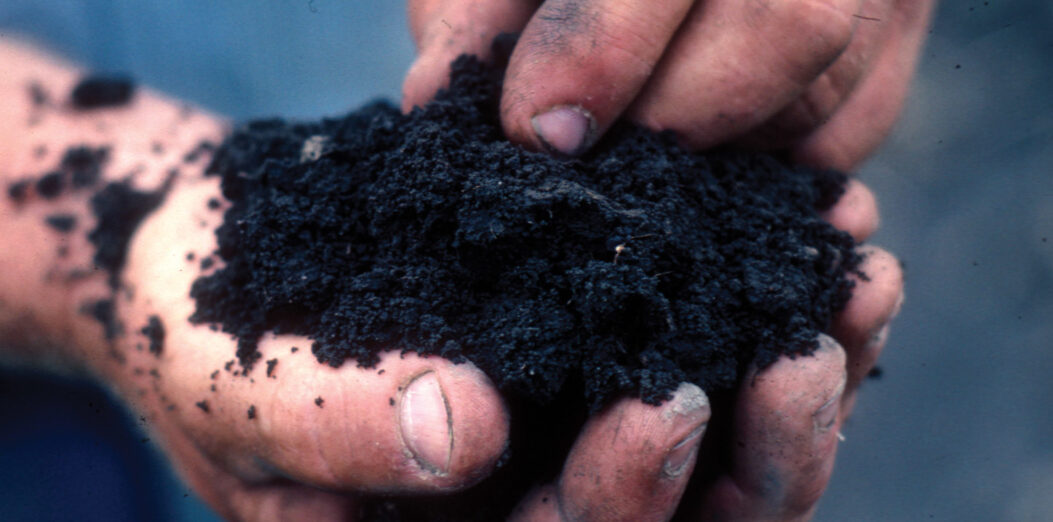
All successful planting starts with the earth in our gardens, so the importance of cultivating healthy soil is vital. Here are a few ways you could improve your soil health in your own garden:
Add Organic Matter
- Organic matter is a much-used term referring to a wide range of invaluable materials for feeding plants, improving soil and as mulch.
- Garden compost is a common type of organic matter and used by many a keen gardener. The most economical and environmentally friendly way to add compost to your garden is to make your own. It’s not hard to do and very rewarding. It’s possible even in a small garden and you can buy composting bins for small spaces. Fill the bins with a mix of green and brown waste such as lawn clippings, annual weeds, plant trimmings even your vegetable waste. You can find more information on the RHS website.
- If you have trees in or around your garden, another free way to improve soil quality is to make leaf mould. It does not require any special conditions, just collect all the leaves you can gather in the autumn and store in either a wire cage, black bin bags, or old compost bags. Leave them in a corner to rot down and after about a year, you will be rewarded with the most excellent, friable, leaf mould full of goodness to add to your soil.
- Before adding organic matter, make sure the ground has been dug over and large clumps are broken up to loosen compaction. You will also need to remove weeds and debris. Add a minimum 5cm layer of organic matter over the surface before digging it in.
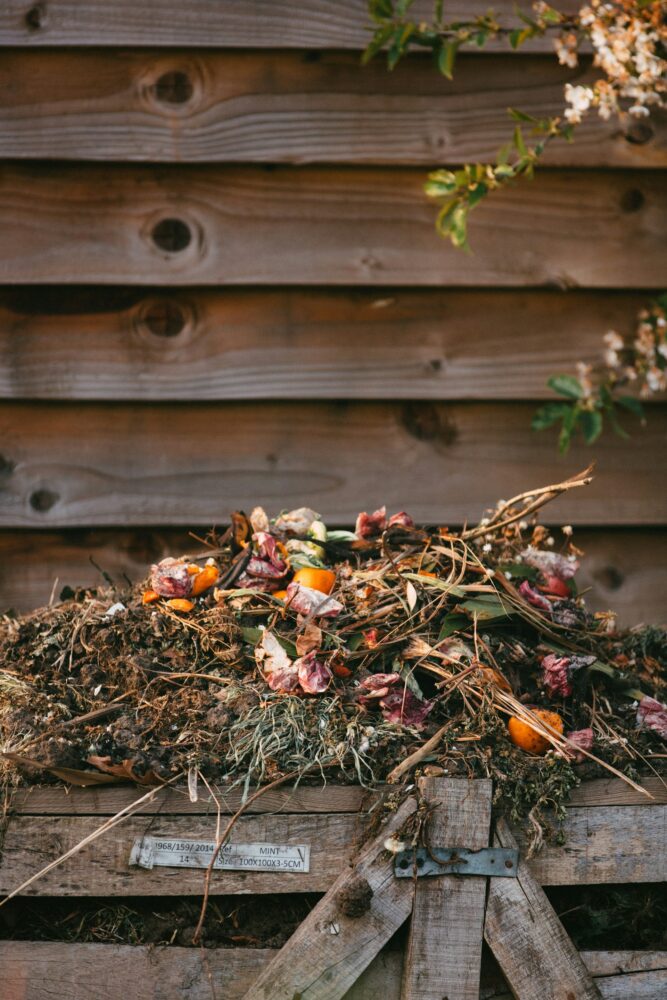
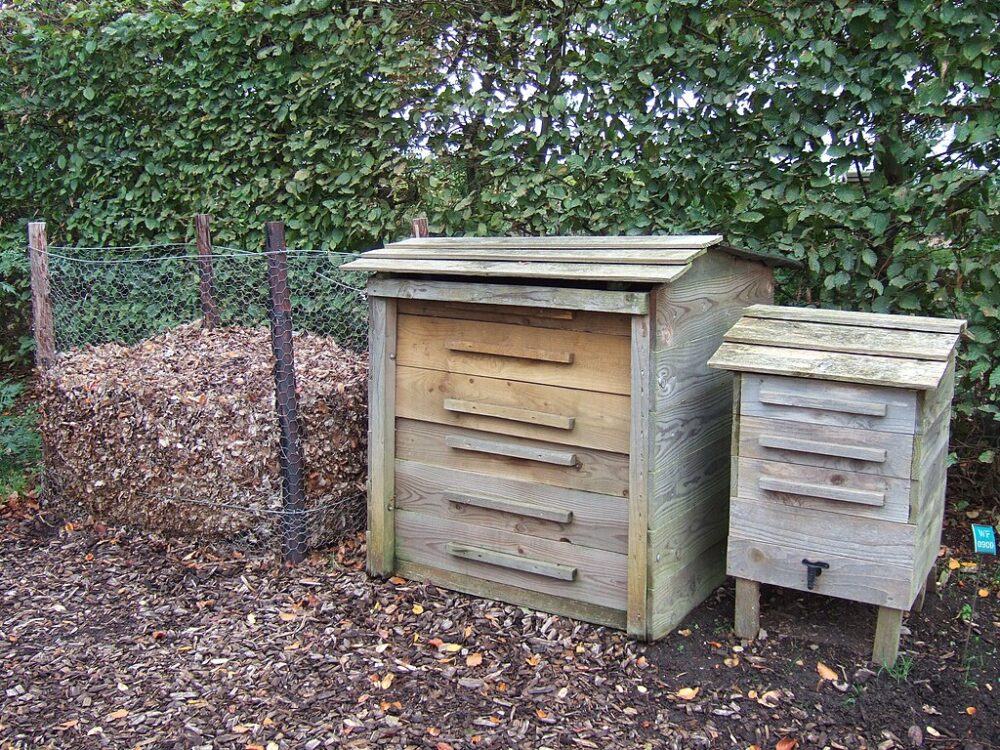
Consider a Wormery
- If you have the space and are looking at an eco-friendly way of fertilising your soil, consider adding a wormery to your garden. Turn kitchen waste and small amounts of garden waste into nutrient-rich compost and a concentrated liquid fertiliser.
- The worms used for composting are not earthworms. Composting worms live in decaying organic matter, whereas earthworms are soil dwellers. This means it is easiest the buy a wormery as a ready-made, self-contained kit.
Sow Cover Crops
- If you have a vegetable garden or area for cut flowers, the soil is often left bare through the winter months and traditionally many people would use suppressant sheets to prevent weed growth. However, with new research emerging on the impact of microplastics on our soil, alternatives are being suggested, one of these being cover crops.
- Cover crops are plants used to improve and maintain your soil by returning depleted nutrients. As well as protecting against erosion, they suppress unwanted weed growth and then once dug in, they become a green manure.
- Cover crops such as clover, rye and common vetch are easy to plant, and seeds can be sown at different times of year. They are left to grow for several months then cut down and dug into the soil before planting to give them time to break down and enrich the ground.
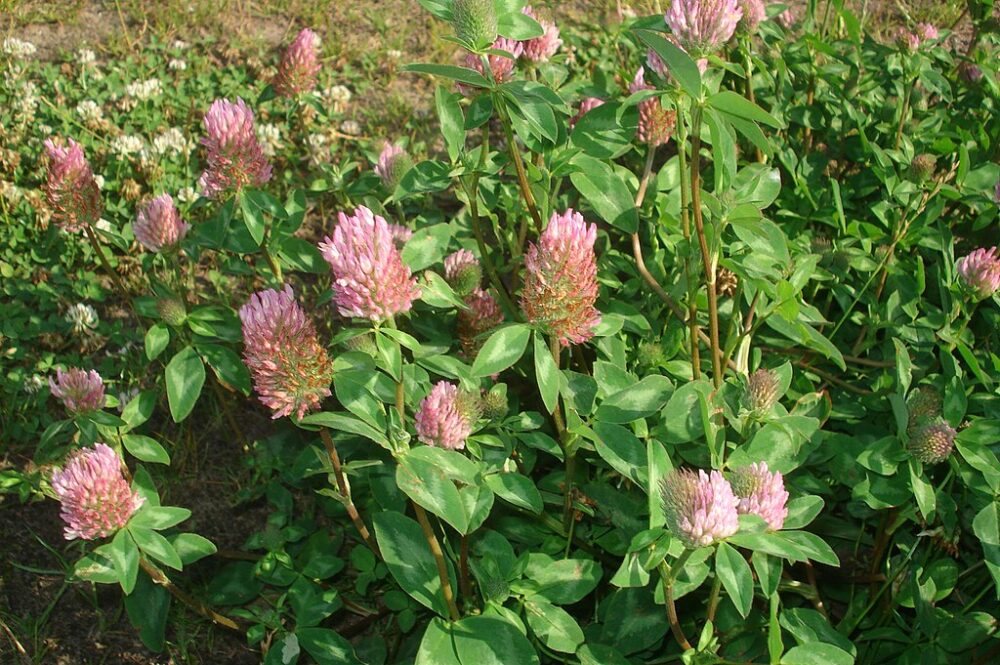
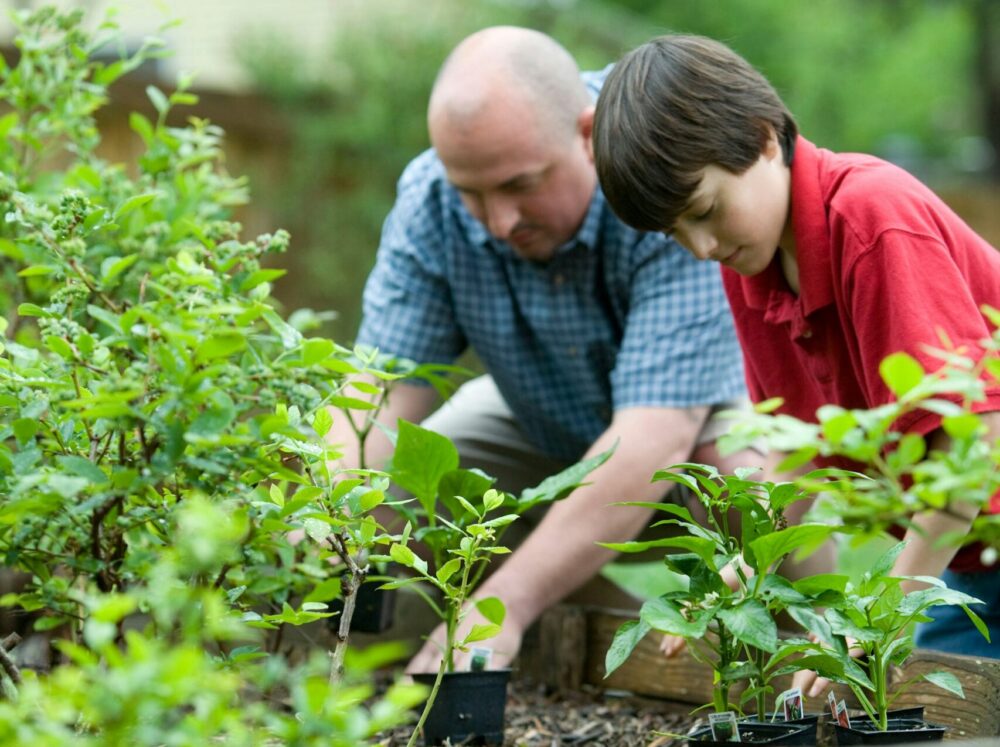
Use the No-Dig Method
- An alternative approach to traditional soil cultivation (digging, forking and rotavating) is the no-dig method. ‘No-dig’ is becoming a popular alternative to traditional soil management as this technique minimises soil disturbance while enhancing soil structure and biodiversity.
- Vegetable beds and flower borders are prepared by covering the ground with organic matter, such as garden compost. Plants are grown directly into the top layer of organic matter. The ‘no-dig’ approach saves time and labour.
- If you are starting a new bed or a particularly weedy existing one, lay a double layer of cardboard, making sure to overlap, before adding a thick layer of mulch. If you have an existing bed that is free of weeds than just add the mulch.
Build Raised Beds
- If your soil is very nutrient deficient, compacted or prone to water logging, consider adding raised beds. Raised beds can be designed into any size or style of garden and not only give better soil conditions for growing, but also are a great design feature. They work really well in small gardens as you can grow more in a smaller space.
- By using raised beds you can maintain healthy soil, improve water retention and drainage, and reduce weed growth. Raised beds also create warmer soils earlier in the year and for longer so you can extend your growing season and types of plants you grow. If designed at an appropriate height they are also easier to maintain and could even be used as additional seating.
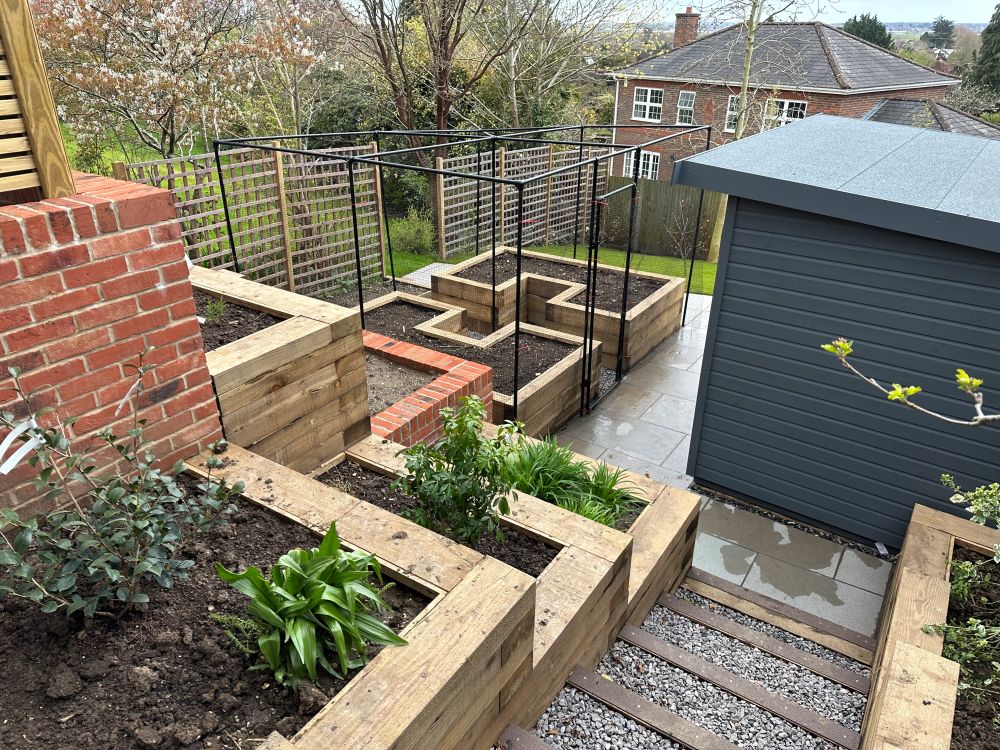
I hope these tips on soil health have been helpful. If you live in the Reading and Newbury area, we’d love to meet and discuss your garden project in detail. From planning a new border to a complete garden remodel, we pride ourselves on transforming ideas into beautiful reality, with minimum disruption – book your free no-obligation garden consultation today.
Image Credits